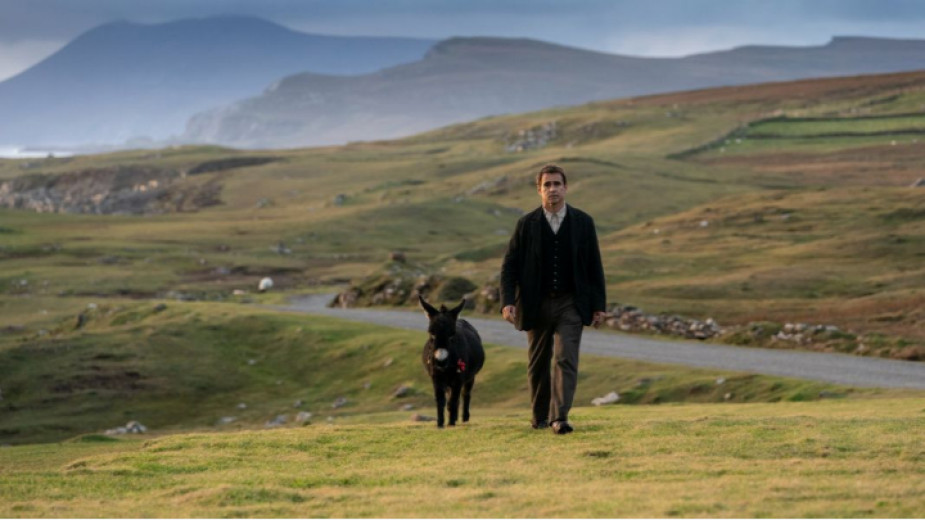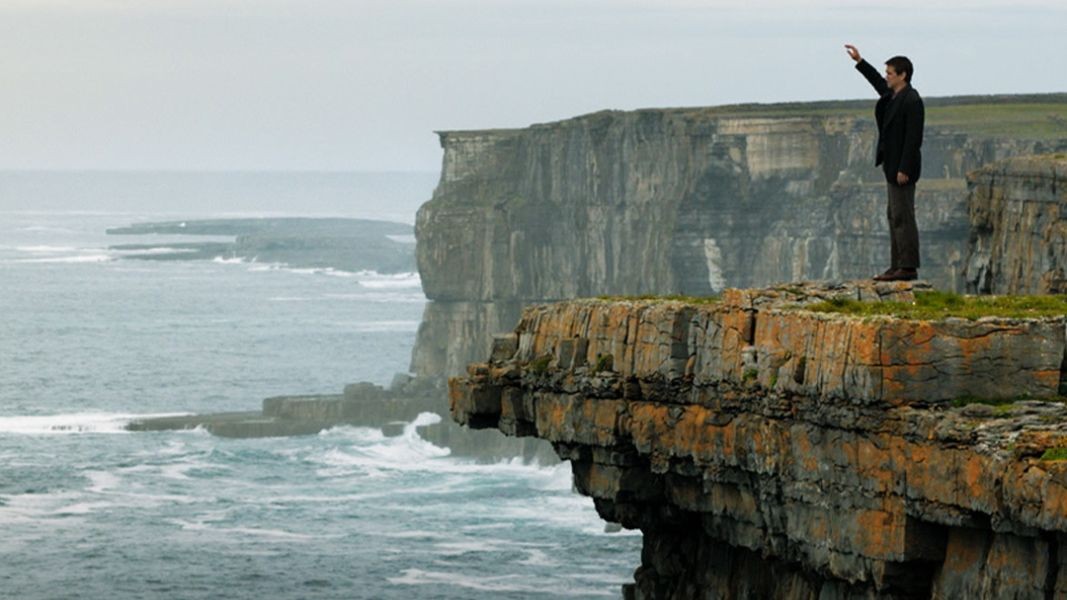 3
3
At the beginning of February, the Bulgarian audience will see the premiere of The Banshees of Inisherin directed by Martin McDonagh. The film is among the favorites for the Oscar, starring Colin Farrell and Brendan Gleeson. At the Venice Film Festival, the production won the prestigious awards for best screenplay for McDonagh, as well as for best actor for Colin Farrell. The film has also been nominated for eight Golden Globe Awards (including Best Motion Picture - Musical or Comedy, Best Director and Best Screenplay).
The Banshees of Inisherin begins in an unexpected way for us, Bulgarians. While Colin Farrell's character is walking, the folk song "Polegnala e Todora" performed by the Mystery of the Bulgarian Voices choir is heard in a close-up.
The beautiful folk song was arranged by Philip Koutev for performance by a polyphonic folk choir and has established itself as one of the most popular Bulgarian folk songs in the world. Its lyrics are particularly poetic. It is about a girl named Todora. While dozing under an olive tree, the breeze breaks one of its branches. The girl wakes up and complains to the wind that he chose the worst possible moment to interrupt her sleep, because she dreamed of her lover, who brought her a bunch of flowers, and among them he placed ... a golden ring.
The Banshees of Inisherin has been defined by critics as a black comedy. The tape is full of dark humor, a parable about damaged friendship and the dangers of petty insults. It has been shot on extremely beautiful locations in Ireland, and for even greater authenticity, the actors speak the local dialect from 100 years ago.

The unique Bulgarian folklore has been used more than once in blockbuster film productions. Vocals characteristic of Bulgaria, performed by Radka Varimezova, can be heard in the fantastic action film by director James Cameron Avatar - one of the most successful productions of all time with 9 Oscar nominations.
The Bulgarian folk song "Planino, stara planino" by the composer Stefan Dragostinov is the background of breathtaking underwater landscapes in the documentary Meetings at the End of the World by director Werner Herzog. The performance is by the women's choir of the Philip Koutev folklore ensemble.
Voices from the London Bulgarian Choir are heard in the Hollywood production Troy, as well as in the film The Virgin Queen about the life of Elizabeth I.
The emblematic song of Bulgaria’s Thracian folklore region "Prituri se Planinata", performed by the world-famous choir The Mystery of Bulgarian Voices, was included in the film Jesus of Montreal (1989). Their performance, but of another wonderful Bulgarian folk song -"Zaidi, zaidi, yasno slantse", can also be heard at the end of the American action movie "300".
Compiled by Veneta Nikolova
The short animated film "Life with an Idiot" by Theodore Ushev won the best film award at the Beijing International Short Film Festival. The animator announced the news on his Facebook profile. "I am very happy because it is..
The Vladigerov brothers will provide a live musical accompaniment to a silent film at Vienna’s Metro Kulturhaus cinema , marking their second time taking on the challenge. The historic Metro Kino has been run by the Austrian Film Archive since 2002,..
The film “Made in EU” by director Stefan Komandarev won the Audience Grand Prize at the 63rd Gijón International Film Festival in Spain. The film triumphed in competition with 95 titles, BTA has reported. “Within a few days, we..

+359 2 9336 661
